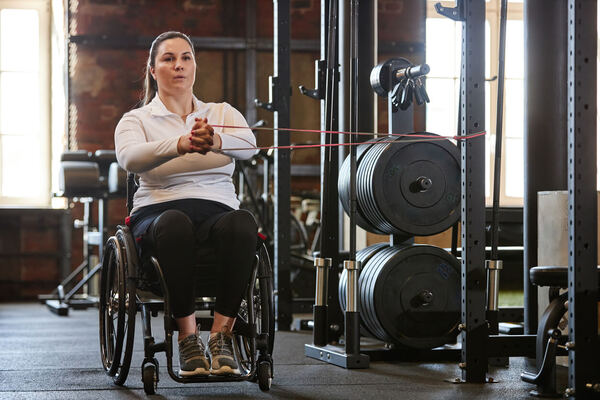
Navigating life after a brain injury poses significant challenges, often resulting in feelings of confusion, frustration, and isolation. Such injuries, whether resulting from trauma, stroke, or a medical condition, transcend physical impacts, frequently altering daily life in profound ways. Changes in movement, communication, memory, and even personality are not uncommon, leaving affected individuals and their families facing a dramatically transformed existence.
Recovery from brain injury is rarely linear, yet with appropriate support, meaningful progress can be attained. Neuro-rehabilitation offers a pivotal avenue for recovery, aiding individuals in regaining independence, mobility, and self-identity. This specialised rehabilitation extends beyond physical healing, aiming to restore one’s quality of life.
The Multifaceted Challenges of Brain Injury Recovery
The spectrum of brain injuries is broad, both in severity and nature, often giving rise to a variety of physical, cognitive, and emotional challenges. Common symptoms include fatigue, concentration difficulties, mobility issues, speech impairments, and mood or behavioural changes. These can persist long-term and, without targeted intervention, may become permanent.
Additionally, the emotional toll is considerable. Individuals recovering from brain injuries frequently report feelings of isolation, misunderstanding, or challenges in resuming work or hobbies. For families, the stress of caregiving coupled with uncertain recovery timelines can be overwhelming. Hence, comprehensive, person-centred rehabilitation is vital.
Understanding Neuro-Rehabilitation
Neuro-rehabilitation employs a multidisciplinary methodology to assist those with nervous system damage—often due to traumatic brain injury, stroke, or neurological disorders like multiple sclerosis or Parkinson’s disease. It encompasses various therapies tailored to the individual’s unique needs, including:
- Physiotherapy for motor function and balance support
- Occupational therapy to re-establish daily living skills
- Speech and language therapy for enhanced communication
- Cognitive therapy aimed at rebuilding memory, attention, and executive functions
- Psychological support to manage anxiety, depression, or behavioural changes
The objective extends beyond merely treating symptoms; it seeks to enable individuals to lead meaningful lives post-injury.
The Importance of Timely and Individualised Intervention
Early intervention is closely linked to improved outcomes following brain injury. Initiating therapy soon after injury—once medically stable—maximises the brain’s neuroplasticity benefits. Neuroplasticity refers to the brain’s capacity to reorganise itself, forming new connections in response to damage.
Given the diversity of brain injuries, treatment must be similarly individualised. Personalised neuro-rehabilitation ensures that therapy aligns with the individual’s goals, lifestyle, and limitations, whether it involves learning to walk again or reclaiming the ability to cook or use a computer. The therapy is customised to the individual, not the other way around.
Tangible Outcomes: Enhancing Function and Confidence
Individuals who engage in neuro-rehabilitation often observe notable improvements in functionality and emotional well-being. Restoring independence in daily activities, however minor, can boost confidence and lessen reliance on others, facilitating re-engagement with work, hobbies, and social interactions.
Furthermore, neuro-rehabilitation assumes a preventative role. Regular physical and cognitive engagement mitigates risks of secondary complications such as muscle atrophy, contractures, pressure sores, and depression. In some instances, it may even decelerate degenerative neurological conditions’ progression.
The Importance of Specialist Facilities
While general physiotherapy provides some assistance, specialist facilities deliver targeted neuro-rehabilitation through experienced, multidisciplinary teams. These often include advanced equipment like functional electrical stimulation, balance systems, and computer-based cognitive training.
In the UK, providers such as Longevity Health & Fitness offer an organised, evidence-driven environment where clients receive holistic treatment. The blend of physical, psychological, and social rehabilitation ensures recovery addresses not just the body, but the entire individual.
Locating Neuro-Rehabilitation Services in the UK
When searching for premier neuro-rehabilitation services within the UK, selecting a provider with a deep understanding of brain injury complexities is crucial. The most effective programmes focus beyond immediate recovery, emphasising long-term adaptability, resilience, and societal reintegration. Ideally, services should provide continual assessment and adapt therapy plans as needs evolve.
A team that collaborates with other healthcare professionals and incorporates family members into the recovery process is also invaluable. Support and education for caregivers are crucial, mitigating burnout and fostering a more sustainable home recovery environment.
Supporting Recovering Loved Ones
Family and friends serve a pivotal role in aiding brain injury recovery, yet the emotional impact should not be underestimated. Neuro-rehabilitation teams can guide families on what to anticipate, manage symptoms at home, and access additional support networks.
Open communication and realistic goal-setting can relieve pressure and transform recovery into a shared journey, rather than a solitary struggle.
A Future Anchored in Possibility
Living with the repercussions of a brain injury is arduous. However, with neuro-rehabilitation, individuals can rediscover purpose, rebuild their skills, and re-establish connections with their environment. Whether it involves walking unaided, returning to a cherished hobby, or re-engaging in conversation—these milestones are significant.
Neuro-rehabilitation offers more than treatment; it delivers hope. For those impacted by brain injury, it is a crucial step towards regaining control.
For those navigating life post-brain injury and seeking information on tailored recovery programmes, explore neuro-rehabilitation services at Longevity Health & Fitness. The right support has the power to transform lives.
